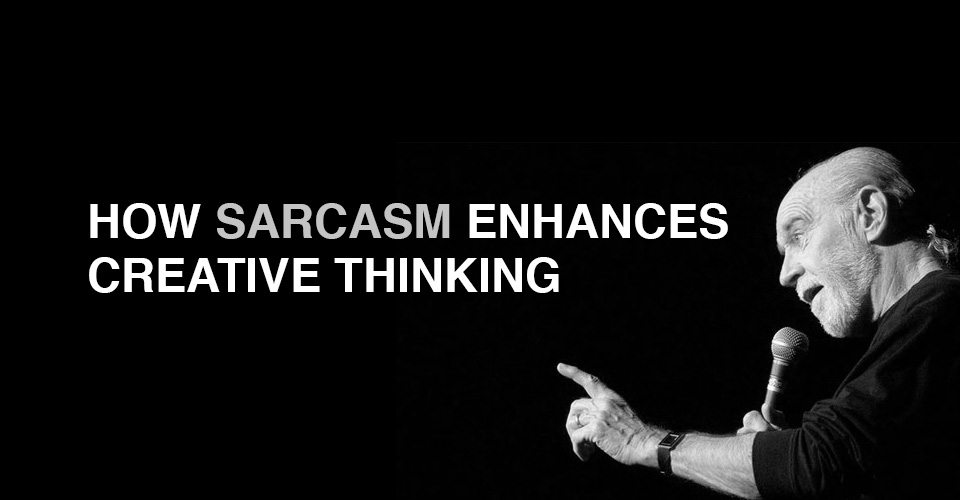Sarcasm, for many, is a favorite kind of humor due to its dark and subversive nature.
When done properly, it is dry, unexpected, and relatable. It mocks people that might otherwise annoy and enrage us, placing us on a higher intellectual ground. Is it a good tone of voice to use when complimenting your wife? Of course not. It can be, however, a fantastic tool with which to access your creative and intellectual side.
Sarcasm requires some amount of intelligence, as well as the ability to analyze and understand a complex thought.
This was illustrated in a study published by the The National Center for Biotechnology Information. Scientists observed both healthy volunteers and subjects suffering from mild brain damage when tasked with a simple storytelling assignment. Participants listened to a variety of recorded tales, each played for the subjects twice. One version included a character making a sarcastic comment and the other did not. Researchers then determined whether participants could identify the story that included sarcasm.
They found that the participants who had suffered damage to their pre-frontal cortex, the area of the brain that engages in complex planning and social behaviors, did not process the sarcastic remarks as quickly as the others – if they were able to catch them at all. This suggests that the use of sarcasm indicates a strong capacity for complex brain function.
Another series of studies by scientists Li Huang, Francesca Gino, and Adam D. Galinsky served to support this theory. Through their research, they concluded that although sarcasm is often an instigator of conflict, it can also be a catalyst for creativity. This is because a successful exchange of sarcasm requires abstract creative thinking from both the creator and the recipient of the sarcastic thought. In their studies, participants who had just engaged in sarcasm were shown to think in a more creative way than those who had engaged in conversations that were either neutral or sincere.
Surprisingly, this same study found that sarcasm is not always damaging to relationships. In fact, the only time sarcasm led to conflict was when it occurred between participants who were not already friends. This means that being sarcastic with a trusted partner can actually boost creativity without damaging the relationship – as long as the joke is not at their expense, of course.
The link between sarcasm and creative thinking is a result of how the different hemispheres of the brain function.
The left hemisphere, which is responsible for logical thought and dominant in right-handed people, deciphers the literal meaning of your words. Meanwhile the right side of the brain, which is responsible for creative thought and is dominant in left-handed people, uncovers the implied meaning. Therefore, sarcasm engages both sides of your brain, while most other forms of conversation only engage one of them.
So, how can we apply this knowledge in our daily lives? According to the Harvard Gazette, we should remove the stigma surrounding sarcastic humor and use it more freely, especially in the workplace. “We hope our research will inspire organizations and communication coaches to take a renewed look at sarcasm,” said Gino. “Instead of discouraging workplace sarcasm completely as they have been doing, they could help educate individuals about the appropriate circumstances under which sarcasm can be used. By doing so, both the individuals involved in sarcastic conversations and the organizations they belong to would benefit creatively.”



